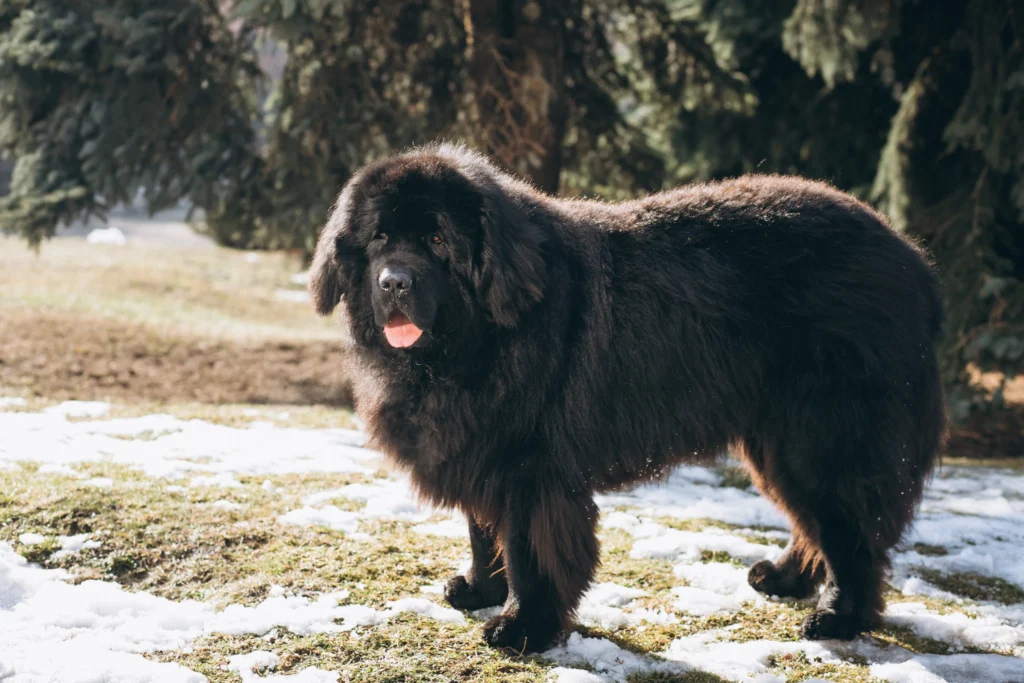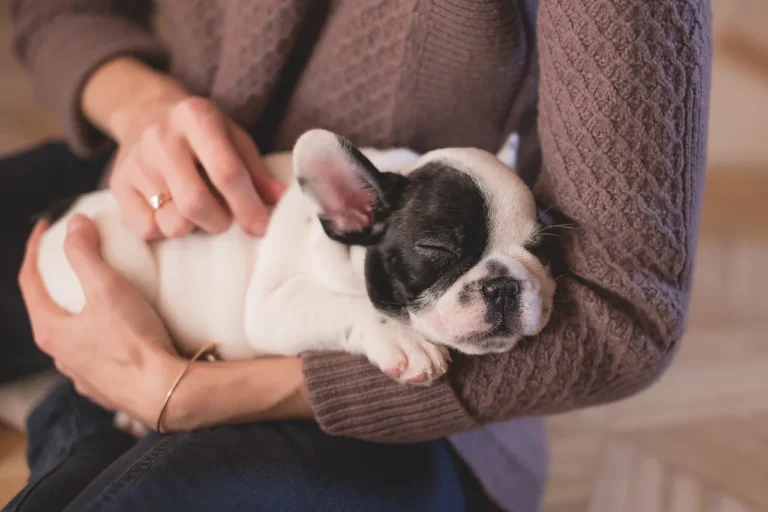Choosing the Right Dog Breed for Your Lifestyle [Guide]
Choosing the right dog breed for your lifestyle isn’t just about picking out the cutest fluffball — it’s temping, I know 😜; it’s a decision that can significantly impact your life and theirs. Imagine having a high-energy breed in a tiny flat…that’s a recipe for disaster and chaos — not to mention you won’t make friends with your neighbours!
Size, temperament, and exercise needs must all align with your lifestyle to ensure both you and your furry companion thrive. If you make the right decision now, think about how much time, energy, and money you are going to save when you don’t need a dog trainer somewhere down the line!
So, to help you make the best decision, I have compiled this handy guide to choosing the right dog breed for your lifestyle — strap in, get a coffee and a snack, because you’re gonna need it 😜.
Table of Contents
The Importance of Choosing the Right Breed for Your Lifestyle
Getting the right breed is important — this is why I started my business and blog. You want and need to make the right decision from the beginning to save yourself and your dog a lot of stress.
Why? If you get a breed that fits you and your life(style), and raise it properly, you will absolutely minimise the potential risk of having your dog display ‘unwanted’ behaviour. This can be lunging on a leash when walking, jumping up on people, excessive barking, you name it.
When this behaviour happens, you have 3 options:
- Ignoring the behaviour, which will cause stress to you and your dog — and ignoring it won’t make it go away!
- Dump your dog in a shelter because you can’t or don’t want to deal with the ‘bad’ behaviour anymore — how unfair to the dog!
- Take a dog trainer — be prepared to spend a lot of time, energy and money!
Can you see where I’m going with this? The right start will save stress, time, energy, and money! It is oh-so-simple, yet so many people just don’t see it. That is where this guide comes in, to help you start off on the right foot…or should I say paw.
Understanding Your Lifestyle Needs
Understanding your unique needs is important when choosing the right dog breed for your lifestyle. Multiple factors come into play, from your daily routine to your living environment. Let’s examine these crucial aspects to help guide your decision-making process.
Activity Level
Do you find yourself bouncing with energy, or are you more of a couch potato? Or maybe you are both — being AuDHD myself, I am definitely both 😅. Anyway, your activity level should influence your dog breed choice. If you’re the adventurous type, embarking on regular hikes or jogs, breeds like Huskies or Labradors might be your perfect companions.

On the other hand, if movie marathons are more your style, a Whippet will be your snuggle buddy. These types of breeds are more inclined to enjoy a gentle walk followed by a snooze on the sofa.
Do you have any physical limitations, e.g. due to a disability? Don’t be discouraged; plenty of breeds will match you. The same principle is applied in terms of activity levels.
Don’t get a husky if you’re a couch potato!
Your Perfect Pupper

Remember: If you are not an active person (or you are away a lot), then don’t take a highly active breed! If you cannot provide your dog with the required physical exercise and mental stimulation, he WILL redirect his energy elsewhere.
This can result in excessive barking, destroying your furniture, escaping, aggression, and so much more!
Living Environment
Where you live can heavily influence your breed choice. Picture this: You have a small studio, and you get yourself a Great Dane….one flick of that tail, and your coffee table is empty 😜. So, if you have a limited living space, a smaller, more compact breed might be better.

Another important thing to consider is if you have access to a backyard. Not all breeds need it, but for high-energy breeds, a backyard can help you have the space for playtime or even build your own agility course.
IMPORTANT: A backyard is NEVER a replacement for walks! Structured walks are needed for exercise, mental stimulation, bonding, chances for socialisation, and behavioural training opportunities; backyards are for playtime or just having fun running around.
Think you can’t have a big breed when you live in an apartment? Think again! Just make sure your dog fits comfortably within the living space, and you’re good to go as long as you fulfil the breed’s exercise needs.
One really weird thing though that no one thinks about (I guess you must be autistic to think like this 😅): When you live in an apartment with wooden floors and you have downstairs neighbours…you might actually drive them crazy with a ‘tick-tack’ sounds of you dogs paws (or I should say nails) when he walks around!
So, whether you’re living in a studio or a mansion, there’s a breed that will feel right at home.
Family Dynamics
Kids and/or other pets are something you need to consider when adding a dog to your household. If you have small children (on the way), a small, fragile dog like Maltese may not be a good choice.
You might want to consider dogs naturally good with kids, like Golden retrievers or Newfoundlanders. Bigger dogs are usually also better at handling a bump or two from a young kid, although keep in mind that a big dog can accidentally knock down your child.
Important: regardless of how well a breed or individual dog is with kids, NEVER leave your kid(s) and dog(s) unsupervised!
Most biting incidents happen with a family dog and it is usually never the dog’s fault!

With other pets in the house, it can also be tricky. Let’s say you have a bunny that you let hop freely in your yard or home. It may be best to choose a breed with little to no prey drive. You don’t want any accidents!
Age
I know, I know, many people don’t like to think about their age, but this is about more than just your age. Dogs are a long-term commitment with a lifespan of between 8 and 16 years — the general rule of thumb: the larger the breed, the shorter the lifespan.
Think about where you are in life and if you are in a position to spend many years with your new pup, considering the breed’s average lifespan.
The older you get, the more risk of getting sick and/or being less mobile. You must, sad but true, also consider what happens after you pass away. Do you have someone willing and able to take in your dog, or does (s)he need to go to a shelter?
Now, getting older doesn’t mean you cannot have a dog, but you might want to consider an older shelter dog. They are often overlooked and yearn for a warm and loving home.

Finances
I hear you think, “What does money have to do with choosing the right breed?!” Well, let me explain. Yes, all dogs cost money — think purchasing one, vet bills, toys, etc. However, not all dogs are created equal! Some breeds are more prone to (specific) health conditions.
While I always recommend pet insurance, you’ll still be paying some money out of your own pocket. If you have a dog with many and/or severe potential health issues, it can still sum up quite a bit over the years.
Secondly, big dogs eat….A LOT! You might want to consider a smaller breed if you have a smaller monthly budget.
Evaluating the Breed
So, we just looked at your lifestyle; now, let’s look at dogs themselves. You need to understand the needs of a breed in order to fulfil them. That makes sense, right? These breed-specific characteristics, or traits, help determine which breeds suit you.
There are several breeds that are just fantastic for first-time dog owners…and there are some that are anything but! Let’s have a look at how temperament, behaviour, and trainability come into play when selecting a suitable breed.
Temperament and Behaviour
This is certainly important, especially if you’ve never owned a dog before. Like with energy levels, not all breeds are suitable for everyone due to temperament and behaviour.
Some breeds have a wonderful, easy-going temperament, like the Golden Retriever, making them suitable for just about anyone; others are more reserved, such as the Akita Inu, making them less suitable for some dog owners.
It is, therefore, important you learn about the temperament and behaviour of a breed you are interested in to see if they are a good fit.

Trainability
Trainability refers to how easily a breed can learn commands and new behaviours. This aspect is vital, especially for first-time dog owners or anyone who might feel overwhelmed by a stubborn pup.
- Highly Trainable Breeds: Breeds such as Border Collies and Poodles are known for being some of the smartest dog breeds out there. They’re like the Einsteins of the dog world, thriving on mental challenges and structure. These breeds are ideal if you’re patient and willing to put in the time and effort to train them effectively. An important thing to remember is that many highly intelligent breeds require a lot of continuous mental stimulation!
- Stubborn Breeds: Breeds like Huskies and Bulldogs can be more headstrong, often requiring a bit more encouragement before they master new tricks — and some just don’t care about learning a host of tricks. Imagine these as your typical rebellious teenager—they have their own mind, but with a bit of patience, they can learn just as well.
Understanding how easy or difficult it is to train your pooch can help you in your quest to look for the perfect match. You need to know what you can offer your potential new pup in terms of time and patience when it comes to training. I don’t often recommend the more stubborn or reserved breeds to first-time dog owners.
Researching Breeds
Deciding to bring a dog into your home is thrilling, but the real magic happens when you find a breed that truly fits your lifestyle. By dedicating time to understanding various breeds, you’ll ensure both you and your new four-legged friend can enjoy a life of harmony and joy.
Consulting Breeders
If you are already considering a specific breed, and your research has indicated it might be a suitable match, go talk to a breeder. They have a wealth of information on that specific breed and would love to talk to you.
I mean, yes, I am good at my job of finding suitable breeds for all sorts of people. However, with probably more than 500 recognised and unrecognised dog breeds in the world, there is no way I can be an expert in them all — I wish!
Beware of Irreputable Breeders!
I need to add a short notice here to NEVER take your puppy from an irreputable breeder (also known as backyard breeders or puppy mills) or a pet shop.
You will get a puppy that will most likely be (extremely) ill — many puppies die shortly after, or they will have a host of health issues later on.
These people only care about making money and don’t care about their dogs. Make sure that you learn how to recognise such horrible breeder! it is crucial that you know how to recognise a puppy mill breeder to save yourself a lot of heartache!
Remember: taking a puppy from a puppy mill/backyard breeder, does NOT mean you are rescuing anyone! Yes, that puppy has been taken out of that environment, but in reality, you are only making room for a new litter of pups!
Considering Adoption and Rescue Options
Adopting a rescue dog can be a rewarding experience, offering a new start for both you and a deserving pet. When considering options, understanding the dynamics of adoption and the steps involved can help smooth the journey for you and your potential companion.
As someone who has adopted shelter dogs (and volunteered at a local shelter for a while), I can tell you that shelter dogs are something different. It will warm your heart when you connect to one (or more!) and be able to give him or her a loving, new home. Trust me, it hits you different.

Evaluating Rescue Dogs
Many people choose a puppy over a shelter dog, and I get it, everyone is drawn to that puppy face – no, seriously, we are hardwired to be drawn to baby animals!
However, part of your evaluation of which breed you want should include considering a shelter dog.
Why? Well, with shelter dogs, considering they are usually older, temperament and behaviour (issues) are already known. That will make it easier to determine if the dog would be a good fit.
Another reason is ‘breed-specific characteristics’ or ‘traits’. When I recommend breeds to people, I do this from the point of view of puppies — nothing is known about their individual temperament/behaviour, meaning that we must consider the ‘normal’ traits of the breed.
However, if you go to a shelter, you might come across a breed that doesn’t portray the normal breed-specific traits. An example could be a high-energy breed that is getting older and, therefore, doesn’t need as much exercise anymore.
You see, an individual dog can have a different temperament/behaviour compared to the breed-specific traits.
When I was born, we had a Bouvier des Flanders. This is considered a herding breed and one that needs quite a lot of physical exercise. This level of exercise is a ‘breed-specific trait’. Now, he didn’t read that instruction manual!
He was, however, the perfect watchdog (which they are known for). He would guard mum and us 2 kids at night; he would go to sleep with dad when he came home from his night shift. When he was awake, he didn’t care much about being active 😅.
Final Reflection
Choosing the right dog breed for your lifestyle is more than a playful decision—it’s an impactful one. This choice affects not only your daily life but your future happiness and well-being, as well as your dog’s. By considering your living space, activity level, and even financial commitment, you can ensure a harmonious relationship with your canine companion.
Remember, the goal isn’t just to pick any dog, but the dog that will thrive with you. You see, for most people, getting a dog is an emotional decision, and they often pick a breed because of how it looks, it was in a movie they’ve seen, or because so-and-so has one too. They forget to really consider which breeds are suitable for their unique family and lifestyle.
So, whether you’re considering a sprightly Terrier or a gentle Giant Schnauzer, embark on this joyful journey armed with knowledge. Don’t forget to embrace the joy and companionship that awaits you. Now, who’s ready to find their perfect furry match?
So, which consideration were you most surprised to read about? Drop your thoughts in the comments!
Remember to pin an image to your favourite pet board!



*Please note: some of the images in this blog post are AI-generated with prompts created by me. These images do not serve an educational purpose.






